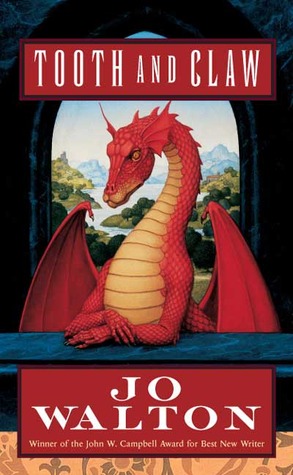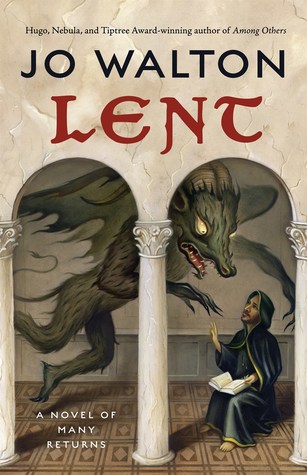That was Zorinth’s review the first time we saw Macbeth when he was ten, delivered loudly as we went out through the lobby.
This production, by the National Theatre School graduating class, downtown in the Monument National theatre was much better, though still not a patch on Hamlet. (But no, you can’t go even if you’re in Montreal, because they’re sold out all week.) Lady Macbeth was wonderful, and Macbeth was wonderful. Macduff was terrific, and the way he played his own son was really impressive. They had the witches onstage a lot of the time as hunched figures on the battlements, and they made great use of the pool they had downstage. There was a lot of movement and really truly beautiful words, delivered with meaning even when they were speeches so famous that there are thirty booktitles hidden in them. It was great. I could have done without the bagpipes, but generally it was an impressive and credible interpretation.
I have a problem with it, and I think this means I am never going to like that play no matter what.
In Pratchett’s Wyrd Sisters (I have seen the play but not read the book, I’m allergic to the books) which does a lot of playing with the concepts of Macbeth it borrows the idea of the play-within-the-play from Hamlet and has the usurper king decide to have a play to set out the way he came to the throne, and give the official version to give him countenance. Naturally, one of the witches intervenes and it becomes the real version of what happens with the opposite result. But there is a sense in which Shakespeare was writing the official version ot history to give it countenance — certainly in his history plays, and for me Macbeth is redolent of the anguish of the real history. The murdered truth behind the fiction leaps out behind the lines at me, in a way not even Richard III does.
At the end of Dunnett’s King Hereafter, a novel about the historical Macbeth, who didn’t do any of the awful things Shakespeare’s character did, when Macbeth is going out to fight his last battle, a prophet tells him that in a thousand years his name and his lady’s name will be the only names from their age of the world that everybody knows. It’s true, too, for while one might make a case for William the Conqueror and Canute, I think one would be on safer ground with everyone recognising the names of Macbeth and Lady Macbeth. He’s comforted by this, and goes out to die thinking that his work building the kingdom will last and be remembered.
That’s the kind of irony you need real history to make work.
Dunnett is better at that kind of spear-point, where there is a tiny touch of the spear that has behind it the whole weight of what came before to drive it home hard, than anyone else I have ever read. (Bujold comes close.)
Shakespeare wasn’t writing history, but I can’t help seeing the play as a kick in the teeth for poor Thorfinn Macbeth’s promised word-fame.
Most people have probably seen Macbeth before they’ve read King Hereafter, but I long ago swore a mighty oath not to read any Shakespeare before I had seen it performed, but to see it as often as I could, so it happened that I hadn’t.
In Renault’s The Mask of Apollo the central character reads Plato’s The Symposium and considers that if Socrates was such a man as Plato describes him then his death was murder and Aristophanes’ hands were not clean. It isn’t fair to consider Shakespeare’s hands stained by the blood of Macbeth’s murdered reputation.
Still, if you would have a story about a man who hears a prophecy and takes it for truth, only to have it twist beneath him, then here are two of them.



